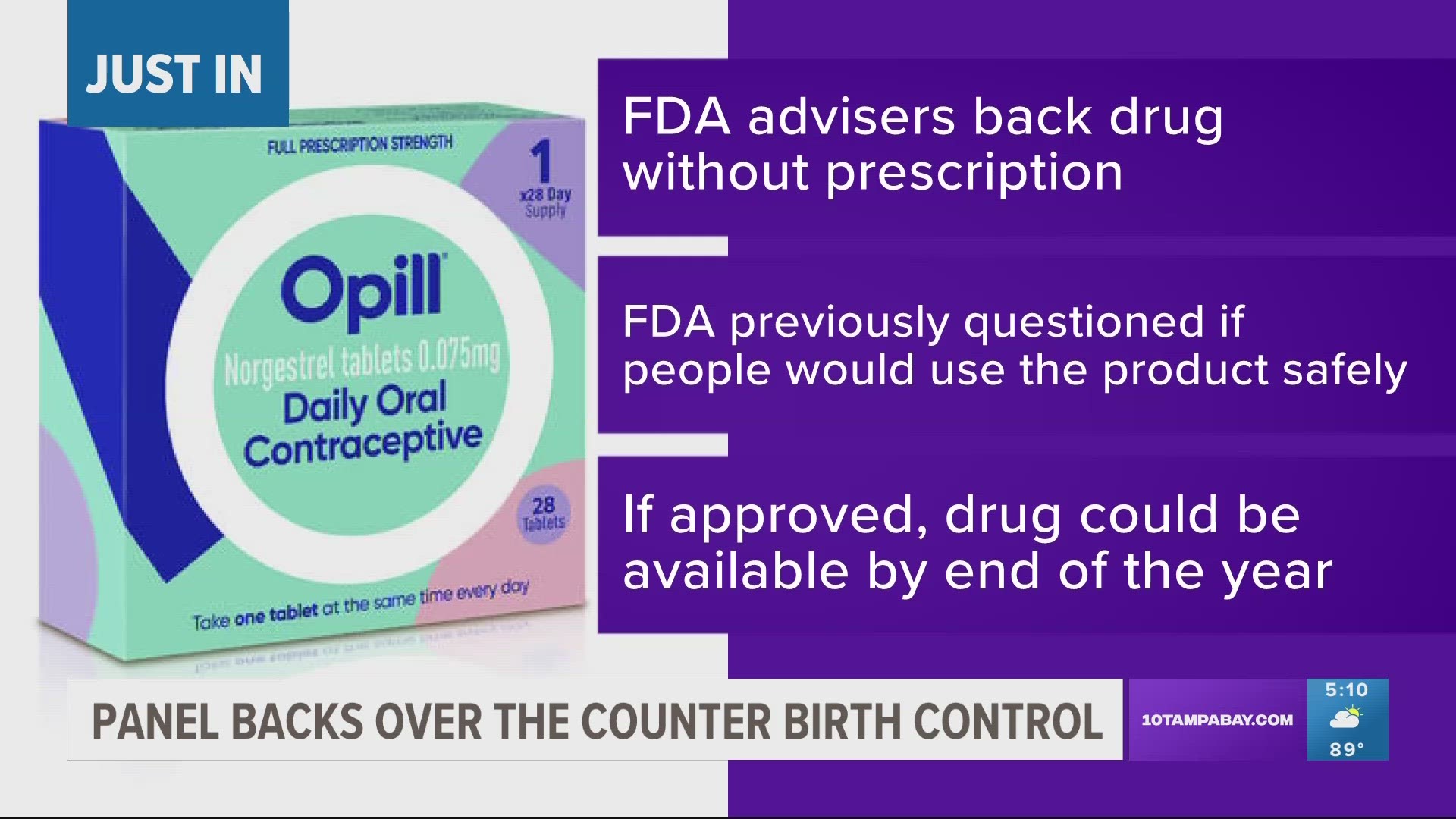Over-the-Counter Birth Control: A Post-Roe Game Changer?

Table of Contents
Increased Accessibility and Affordability of Over-the-Counter Birth Control
One of the most significant potential benefits of over-the-counter (OTC) birth control is increased accessibility and affordability. Currently, many women face financial barriers to accessing prescription birth control, including co-pays, insurance limitations, and the cost of doctor visits. OTC birth control could dramatically reduce these costs, making contraception more attainable for a wider range of individuals.
- Reduced reliance on doctor visits and insurance coverage: Eliminating the need for a prescription simplifies the process, making it easier for women to obtain birth control, regardless of their insurance status or proximity to healthcare providers.
- Potential for wider geographic availability, especially in underserved areas: OTC availability could expand access to birth control in rural and underserved communities where healthcare access is limited.
- Cost savings for individuals and the healthcare system: Lower costs could lead to significant savings for both individuals and the healthcare system as a whole, potentially reducing the burden of unintended pregnancies and associated healthcare costs.
However, concerns remain about affordability disparities. While OTC birth control might be cheaper than prescription options, it could still be unaffordable for some. Government subsidies and affordability programs may be necessary to ensure equitable access for all women.
The Role of Education and Responsible Use of Over-the-Counter Birth Control
The successful implementation of OTC birth control hinges on comprehensive education and responsible use. Clear labeling, detailed instructions, and readily accessible information are crucial to ensure women understand how to use these methods effectively and safely. This necessitates a robust public health campaign focusing on:
- Understanding potential side effects and contraindications: Women need to be fully informed about potential side effects and contraindications associated with different birth control methods to make informed decisions.
- Reliable access to accurate information about different birth control methods: Providing access to multiple reliable sources of information, including online resources, pamphlets, and pharmacist consultations, is crucial.
- The role of pharmacists in providing counseling and support: Pharmacists can play a vital role in providing counseling, answering questions, and ensuring women understand how to use their chosen method correctly.
Overcoming potential challenges in ensuring widespread understanding requires a multi-pronged approach involving healthcare providers, educators, and community organizations.
Potential Impact on Public Health: Unintended Pregnancies and STIs
The impact of OTC birth control on public health is a complex issue with both potential benefits and drawbacks. Increased access to contraception could lead to:
- Reduced rates of unintended pregnancies: Easier access to birth control could significantly decrease rates of unintended pregnancies, ultimately reducing the need for abortions and improving maternal and child health outcomes.
- Increased awareness of the importance of contraception: Widespread availability could normalize conversations around contraception and encourage more women to use effective methods.
- The need for continued education about STI prevention: While OTC birth control can prevent pregnancy, it does not protect against sexually transmitted infections (STIs). Comprehensive sexual health education remains crucial.
However, it’s vital to acknowledge that increased access to birth control alone won't solve all reproductive health challenges. Addressing social and economic factors contributing to unintended pregnancies remains critical. Comprehensive sexual education programs that include discussions about responsible sexual behavior and STI prevention are essential.
The Legal and Regulatory Landscape Surrounding Over-the-Counter Birth Control
Making birth control available over-the-counter involves navigating a complex legal and regulatory landscape. The Food and Drug Administration (FDA) plays a central role in determining which medications can be sold without a prescription. This process involves:
- Review of the FDA approval process for over-the-counter medications: The FDA assesses the safety and efficacy of birth control methods before granting approval for OTC sales. This process is rigorous and demands extensive clinical data.
- Discussion of potential legal challenges and lobbying efforts: The decision to make birth control OTC is likely to face significant legal and political challenges, with various lobbying groups advocating for and against the change.
- Comparison of regulations across different countries: Examining the experiences of other countries that have already made birth control OTC can provide valuable insights and inform the debate in the United States.
Ongoing debates and political considerations will inevitably shape the future of OTC birth control in the U.S., highlighting the need for open and informed dialogue.
Conclusion: Over-the-Counter Birth Control: A Step Towards Reproductive Justice?
The potential shift towards over-the-counter birth control presents both opportunities and challenges. While increased accessibility and affordability could significantly improve reproductive health outcomes, careful consideration must be given to education, responsible use, and potential public health implications. The legal and regulatory hurdles are substantial, demanding a comprehensive and nuanced approach. Ultimately, the question of whether OTC birth control represents a step towards reproductive justice depends on the successful implementation of supportive policies and educational initiatives that ensure equitable access for all. Learn more about available over-the-counter birth control options, advocate for increased access to affordable healthcare, and engage in informed discussions about reproductive healthcare. The future of reproductive healthcare post-Roe hinges on our collective commitment to ensuring access to safe and effective birth control for all.

Featured Posts
-
 Teslas Reduced Q1 Profitability A Consequence Of Musks Political Entanglements
Apr 24, 2025
Teslas Reduced Q1 Profitability A Consequence Of Musks Political Entanglements
Apr 24, 2025 -
 Tarantinov Prezir Film S Travoltom Kojeg Ne Zeli Vidjeti
Apr 24, 2025
Tarantinov Prezir Film S Travoltom Kojeg Ne Zeli Vidjeti
Apr 24, 2025 -
 Build Your Voice Assistant Easily With Open Ais New Tools 2024
Apr 24, 2025
Build Your Voice Assistant Easily With Open Ais New Tools 2024
Apr 24, 2025 -
 Child Actor Sophie Nyweide Mammoth Noah Dead At 24
Apr 24, 2025
Child Actor Sophie Nyweide Mammoth Noah Dead At 24
Apr 24, 2025 -
 Price Gouging Allegations Surface In La Following Devastating Fires
Apr 24, 2025
Price Gouging Allegations Surface In La Following Devastating Fires
Apr 24, 2025
